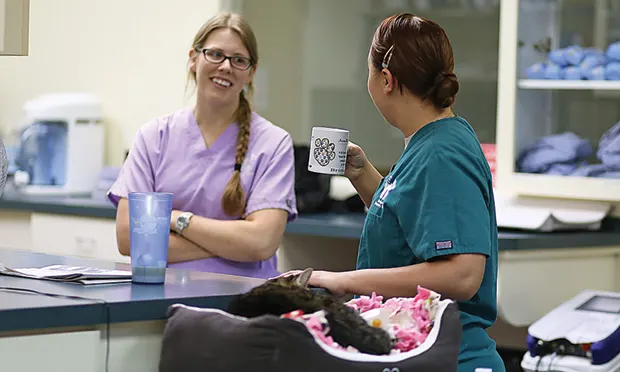
Gossip is an insidious “disease” that decreases the entire practice team’s productivity, increases distrust, lowers morale, and may cause high-performing team members to leave. It may even undermine the practice’s goals and mission. Fortunately, you can cure your practice of this pervasive problem and create a gossip-resistant culture. Here are 5 ways that I have found successful:
1. Diagnose the Cause(s)
Any group can gossip, but underlying causes are usually the reason gossip becomes problematic in a practice. Do leaders engage in gossip? Are team members complaining to each other because no one else will listen to their concerns? Could team members simply be jumping to conclusions because they have not been told about a particular situation?
2. Treat the Underlying Condition
Swiftly address the causes once they have been diagnosed. Practice leaders should never participate in the rumor mill and should actively discourage harmful discussions. Team members should have a trusted leader who listens to their concerns and helps address any problems. Tall tales could result from a lack of transparency, so enlighten the entire team by improving communication and providing full information about the practice’s affairs. Routine updates on targets, goals, strategies, and plans eliminate the need for people to fill in the blanks on their own.
Test your skills: Preventing & addressing toxic teams
3. Identify the Pathogens
Gossip tends to originate from a small, core group of people. A generic email to the entire team warning that gossip will not be tolerated will not address the problem. Leadership must identify the offenders and confront them directly by explaining the problem, its overall impact, and the consequences if the malicious talk continues.
4. Build a Herd Immunity
A culture of respect and trust nurtures an environment where gossip is not tolerated. Once the problematic team members have been spoken to face-to-face, a company-wide meeting stating your intent to eliminate any gossip is necessary. Bring the issue out in the open and train the rest of the team to handle overheard gossip.
Gossip cannot survive without an accepting listener. When the practice team is on board with an anti-gossip culture and each member is confident he or she knows how to respond to gossipmongers, those who engage in the behavior will be considered untrustworthy and immature, and peer pressure will help contain the problem.
5. Focus on Prevention
Ongoing maintenance will keep gossip at bay. Provide your team with routine practice information and updates, and ample avenues for feedback. Train team members about conflict resolution so they know how to discuss any concerns openly, respectfully, and effectively.
Conclusion
Never tolerate gossip, and ensure that leadership consistently models this culture. A practice with this malignant “disease” can be cured, and the outcome—a happy, healthy practice—is well worth the effort.
This article was originally published in Veterinary Team Brief.